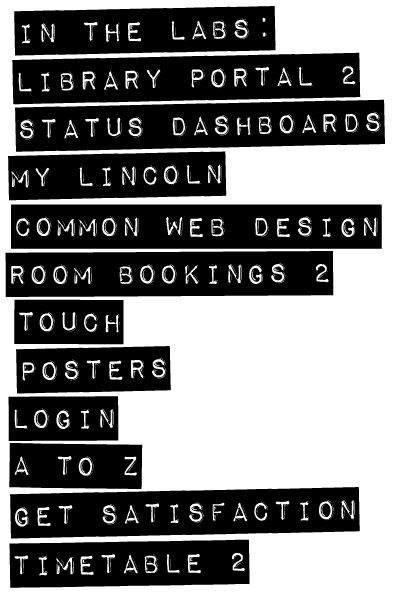As a few people have requested, our magical URL shortening service at http://lncn.eu now comes with a delicious API. It’s directly compatible with the is.gd API, and is so simple that even a monkey could use it (providing the monkey was familiar with the basics of HTTP GET and URL encoding).
Its usage is very simple. All you need to do is call http://lncn.eu/api with the GET parameter ‘longurl’ set to a URL encoded version of the URL you want shrinking. For example:
http://lncn.eu/api?longurl=http%3A%2F%2Fexample.com
The site will then return (in plaintext) the shortened URL, or if you’ve broken it a HTTP 500 error code.
http://lncn.eu/uv
It’s really that easy. More changes are in the pipeline, and as always I am taking requests.
 Over the last couple of weeks, the Online Services Team (the nice bunch of people in ICT who look after – in broad terms – websites that do things) has acquired a shiny new server to muck around with and develop on. For the most part this involves Alex and myself slamming bits of the University together in weird and wonderful ways that nobody has thought of yet and seeing what sticks, what falls apart and what makes people complain. We’re calling the server (and the whole process) Labs.
Over the last couple of weeks, the Online Services Team (the nice bunch of people in ICT who look after – in broad terms – websites that do things) has acquired a shiny new server to muck around with and develop on. For the most part this involves Alex and myself slamming bits of the University together in weird and wonderful ways that nobody has thought of yet and seeing what sticks, what falls apart and what makes people complain. We’re calling the server (and the whole process) Labs.